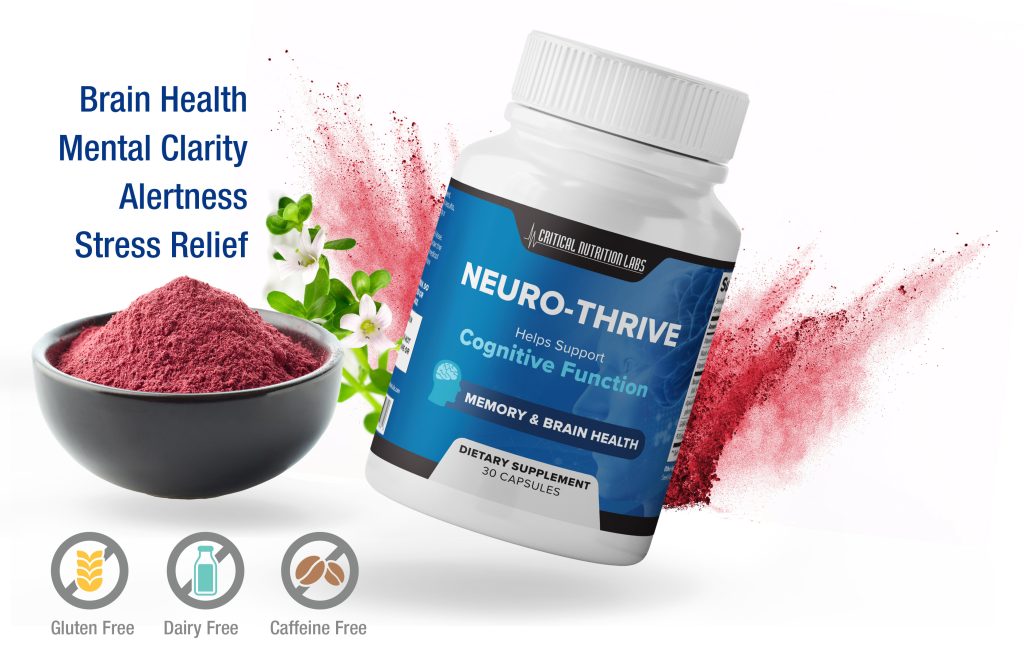Did you know that more than one in nine adults aged 45 and older report experiencing confusion or memory loss? [1]
What if the answer to sharper memory was as simple as a stick of chewing gum?
Yes, you read that right.
The solution to enhancing your memory might just be hiding in your pocket, wrapped in a small, colorful package.
Imagine being able to remember names, dates, and where you left your keys just by chewing gum.
It sounds almost too simple, but there’s intriguing science to back it up.
In this blog post, we’re going to explore the surprising connection between chewing gum and memory improvement.
We’ll dive into the research, uncover potential benefits, and provide practical tips on how to incorporate this easy habit into your daily life.
So, grab your favorite pack of gum, and let’s find out if this sweet little trick can help keep your mind sharp and your memory strong!

How Does Chewing Gum Help Memory?
Chewing gum has been around for centuries. Ancient civilizations chewed on natural resins and sap for enjoyment and medicinal purposes.
Fast forward to the modern era, and gum has become a staple in many people’s lives.
It’s often enjoyed for its flavor, ability to freshen breath, or simply as a habit.
But beyond these common uses, recent studies have uncovered a more intriguing benefit—improved cognitive function, particularly memory.
So, how does chewing gum potentially enhance memory?
It all comes down to several key mechanisms that kick into gear when you start chewing.
1. Increased Blood Flow to the Brain
When you chew gum, the repetitive motion stimulates your jaw muscles.
This, in turn, increases blood flow to your brain.
The surge in blood flow enhances the delivery of oxygen and nutrients to brain cells, particularly to the hippocampus—the region responsible for memory and learning.
More blood flow means the hippocampus can function more efficiently, which may improve memory retention and recall.
2. Enhanced Arousal and Alertness
Chewing gum also has a surprising effect on your overall state of alertness.
The act of chewing increases heart rate and produces a mild level of arousal, similar to light physical activity.
This heightened state of alertness can help you stay focused and engaged in memory tasks, making it easier to absorb and retain information.
3. Stimulated Production of Insulin
Interestingly, chewing gum, especially those with a sweet flavor, can stimulate the production of insulin.
Insulin helps to regulate blood sugar levels but also significantly impacts brain function.
It helps facilitate the uptake of glucose into brain cells, providing a much-needed energy boost.
This increased energy availability can enhance cognitive processes, including memory formation and recall.

Chewing Gum and Memory: What Does Science Say?
Chewing gum is more than just a tasty habit.
It turns out, this simple action might just help to support cognitive function, particularly in enhancing alertness and sustained attention.
Let’s break down the key benefits, according to what studies have found:
Enhanced Alertness and Sustained Attention
Chewing gum has been shown to boost alertness and maintain attention over extended periods.
This is particularly useful in tasks that require prolonged concentration.
Studies have found that chewing gum can improve sustained attention, making it easier to stay focused during long tasks.
This is believed to be due to the increased arousal and heightened heart rate associated with the physical act of chewing. [2]
Neuropsychological Effects
Research also supports the cognitive benefits of chewing gum through neuropsychological data.
For example, chewing gum has been linked to shortened latency in the event-related potential P300, a brainwave associated with vigilance.
This means that gum chewers can respond more quickly and accurately to stimuli.
Additionally, chewing gum increases frontal and temporal beta power, brain activities associated with attention and cognitive processing. [3]
Reaction Time and Brain Activity
Chewing gum can also quicken reaction times. [4]
It activates motor regions and networks in the brain responsible for alerting and executive functions.
This includes areas like the anterior cingulate cortex and left frontal gyrus, which are crucial for managing complex cognitive tasks.
Interestingly, this effect occurs even when the gum has no flavor or odor, suggesting that the physical act of chewing itself is the primary driver of these cognitive benefits.
Stress and Mood Regulation
Chewing gum doesn’t just enhance cognitive function; it can also help manage stress and improve mood.
People who chew gum regularly report lower levels of stress and anxiety. [5]
Some studies have even found that chewing gum can reduce anxiety and stress induced by social stressors.
For example, in university students and staff, regular gum chewing over two weeks led to reduced feelings of stress, anxiety, and depression.
Real-World Applications
The benefits of chewing gum extend beyond the lab.
In everyday work environments, chewing gum has been associated with higher productivity and fewer cognitive issues. [6]
This suggests that gum can be a simple yet effective tool to improve workplace performance and overall well-being.

Practical Tips
Ready to start incorporating more chewing gum into your routine?
Here are some tips on how to maximize the effectiveness of this new habit:
Choosing the Right Gum
Not all gum is created equal when it comes to cognitive benefits.
For the best results, opt for sugar-free gum to avoid the negative effects of sugar on your teeth and overall health.
Look for gum that contains xylitol, a natural sweetener that also has dental benefits.
Additionally, peppermint-flavored gum is often recommended as it may have an extra boost for alertness and focus due to its stimulating scent.
Frequency and Timing
When it comes to chewing gum for cognitive benefits, timing and frequency matter.
To maximize alertness and memory, consider chewing gum during tasks that require sustained attention, such as studying, working on a detailed project, or during long meetings.
Aim to chew for about 15-20 minutes at a time, as this duration is often cited in studies for optimal cognitive benefits.
However, avoid excessive gum chewing throughout the day to prevent potential jaw discomfort or issues.
Complementary Practices
Chewing gum can be a handy tool for boosting cognitive function, but it’s even more effective when combined with other memory-enhancing practices. Here are a few suggestions:
Memory Supplements: Consider taking a memory supplement like Neuro-Thrive from Critical Nutrition Labs. This supplement is designed to support brain health and improve cognitive function, making it an excellent complement to the benefits of chewing gum.
Puzzles and Brain Games: Engage in activities that challenge your brain, such as crossword puzzles, Sudoku, or other brain games. These exercises can help keep your mind sharp and improve your memory over time.
Balanced Diet: Eating a balanced diet rich in omega-3 fatty acids, antioxidants, and vitamins can significantly enhance brain health. Foods like fish, berries, nuts, and leafy greens are great for boosting cognitive function.
Regular Exercise: Physical activity increases blood flow to the brain and can improve memory and cognitive abilities. Aim for at least 30 minutes of exercise most days of the week.
Adequate Sleep: Ensure you get enough sleep each night, as rest is crucial for memory consolidation and overall brain health. Aim for 7-9 hours of quality sleep per night.

Unlock the Full Potential of Your Mind with Neuro-Thrive
If you’re looking to support your cognitive health and reduce those frustrating “senior moments,” Neuro-Thrive from Critical Nutrition Labs is your perfect ally.
Designed specifically for older adults, this all-natural memory support supplement combines scientifically researched ingredients that may help promote memory recall and cognitive function.
What’s Inside Neuro-Thrive?
Here is what you’ll find inside every bottle of Neuro-Thrive:
PQQ (Pyrroloquinoline Quinone): May help support attention and cognitive function by protecting brain cells, encouraging the growth of new ones, and minimizing inflammation.
Bacopa Monnieri Extract: May boost concentration and offer neuroprotective benefits while helping to reduce stress and anxiety for overall mental well-being.
Alpha GPC: Could enhance focus and memory recall by increasing acetylcholine levels and providing neuroprotective benefits.
GABA (Gamma-Aminobutyric Acid): Might help reduce anxiety and stress while supporting focus. It also promotes restful sleep, potentially offering neuroprotective benefits for overall brain health.
Vitamin D3: Provides support for brain cell protection, helps fight inflammation, and assists in removing harmful proteins possibly connected to cognitive decline.
Embrace each day with confidence and clarity.
Whether you’re chewing gum to enhance your memory or engaging in other brain-boosting activities, Neuro-Thrive can provide the extra support you need to keep your mind vibrant and sharp.
Don’t let memory lapses hold you back.
Add Neuro-Thrive to your daily routine and see the difference it can make.
References
Morbidity and Mortality Weekly Report
Wooten KG, McGuire LC, Olivari BS, Jackson EM, Croft JB. Racial and Ethnic Differences in Subjective Cognitive Decline — United States, 2015–2020. MMWR Morb Mortal Wkly Rep 2023;72:249–255. DOI: http://dx.doi.org/10.15585/mmwr.mm7210a1
Nutritional Neuroscience
Allen A. P., Smith A. P. Effects of chewing gum and time-on-task on alertness and attention. Nutritional Neuroscience. 2012;15(4):176–185. doi: 10.1179/1476830512Y.0000000009.
Neuroscience Research
Sakamoto K., Nakata H., Honda Y., Kakigi R. The effect of mastication on human motor preparation processing: a study with CNV and MRCP. Neuroscience Research. 2009;64(3):259–266. doi: 10.1016/j.neures.2009.03.008.
Journal of Cognitive Neuroscience
Fan J., McCandliss B. D., Sommer T., Raz A., Posner M. I. Testing the efficiency and independence of attentional networks. Journal of Cognitive Neuroscience. 2002;14(3):340–347. doi: 10.1162/089892902317361886.
Stress and Health
Smith A. P. Chewing gum, stress and health. Stress and Health. 2009;25(5):445–451. doi: 10.1002/smi.1272.
Appetite
Smith A. P., Chaplin K., Wadsworth E. Chewing gum, occupational stress, work performance and wellbeing. An intervention study. Appetite. 2012;58(3):1083–1086. doi: 10.1016/j.appet.2012.02.052.

